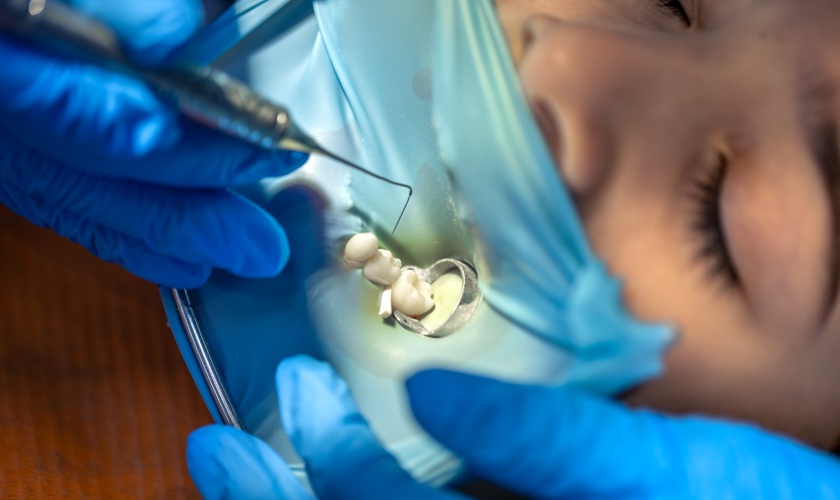
Wisdom teeth extraction is a standard dental procedure, but is it always necessary? Many people fear the process, but understanding the reasons behind this procedure can help ease those concerns. This blog will explore when wisdom teeth extraction is genuinely needed and why some cases may not require it.
What Are Wisdom Teeth?
Wisdom teeth are the third set of molars at the back of your mouth. They usually appear between the ages of 17 and 25. For some people, these teeth come in without issues, while others experience pain or complications.
When is Wisdom Teeth Extraction Necessary?
- Impaction of Wisdom Teeth
The most common reason for wisdom teeth extraction is impaction. This occurs when the wisdom teeth do not fully emerge from the gums. Impacted teeth can cause pain, swelling, and even infection. When a tooth is partially exposed, food and bacteria can get trapped, leading to potential oral health problems. In these cases, wisdom teeth extraction in Bakersfield becomes essential.
- Crowding of Teeth
If your mouth doesn’t have enough space for wisdom teeth, they may push against adjacent teeth, causing crowding. This can lead to misalignment, affecting your bite. Crowding can also interfere with orthodontic treatments, so your dentist may recommend extraction to maintain optimal alignment.
- Cavities or Infection
Wisdom teeth are located at the back of your mouth, making them harder to clean. As a result, they are more prone to cavities and infection. If these issues are not addressed, they may spread to nearby teeth, requiring extraction to prevent further damage.
- Gum Disease or Inflammation
Another reason for wisdom teeth extraction is gum disease. If your wisdom teeth are difficult to clean or are partially erupted, they can cause gum inflammation or infections. The bacteria in the gums can lead to serious health problems. In such cases, removing the wisdom teeth can improve oral health and prevent more serious complications.
When is Wisdom Teeth Extraction Not Necessary?
Although wisdom teeth extraction is standard, it is not always required. Sometimes, your wisdom teeth may emerge properly, align correctly, and remain cavity-free. If your mouth has enough space and the teeth don’t cause pain, your dentist may advise leaving them alone. Regular checkups and monitoring can ensure that they don’t become a problem later.
- Properly Erupted Wisdom Teeth
If your wisdom teeth come in fully and correctly without pain or discomfort, they may not need extraction. However, you should still have them monitored by your dentist regularly.
- Good Oral Hygiene
If you maintain excellent oral hygiene, your wisdom teeth may stay healthy, even in their hard-to-reach spots. Regular brushing, flossing, and professional cleanings can help prevent the need for extraction.
What Happens During Wisdom Teeth Extraction?
If your dentist recommends wisdom teeth extraction, the process typically involves local anesthesia to numb the area. In some cases, sedation or general anesthesia may be used. The dentist or oral surgeon will carefully remove the teeth, and you’ll be given aftercare instructions for healing. Most people recover within a few days, although swelling and discomfort are typical for the first few days.
Recovery and Aftercare Tips
Recovery after wisdom teeth extraction usually takes a few days. Here are some tips to ensure a smooth recovery:
- Apply ice packs to reduce swelling.
- Stick to soft foods and liquids for the first few days.
- Avoid smoking, as it can delay healing.
- Take prescribed pain medications to manage discomfort.
Is Wisdom Teeth Extraction Always Necessary?
In conclusion, wisdom teeth extraction is not always required. If your wisdom teeth grow suitably, are healthy, and do not cause discomfort, there may be no need to remove them. However, extraction is often the best solution if they are impacted, cause pain, or threaten your oral health. Regular dental visits and early detection of potential problems are key to preventing future complications. Always consult your dentist to determine the best course of action for your needs.
If you have concerns about your wisdom teeth, don’t hesitate to schedule a consultation with your dentist today. Early evaluation can help you make informed decisions and ensure the best care for your oral health.

